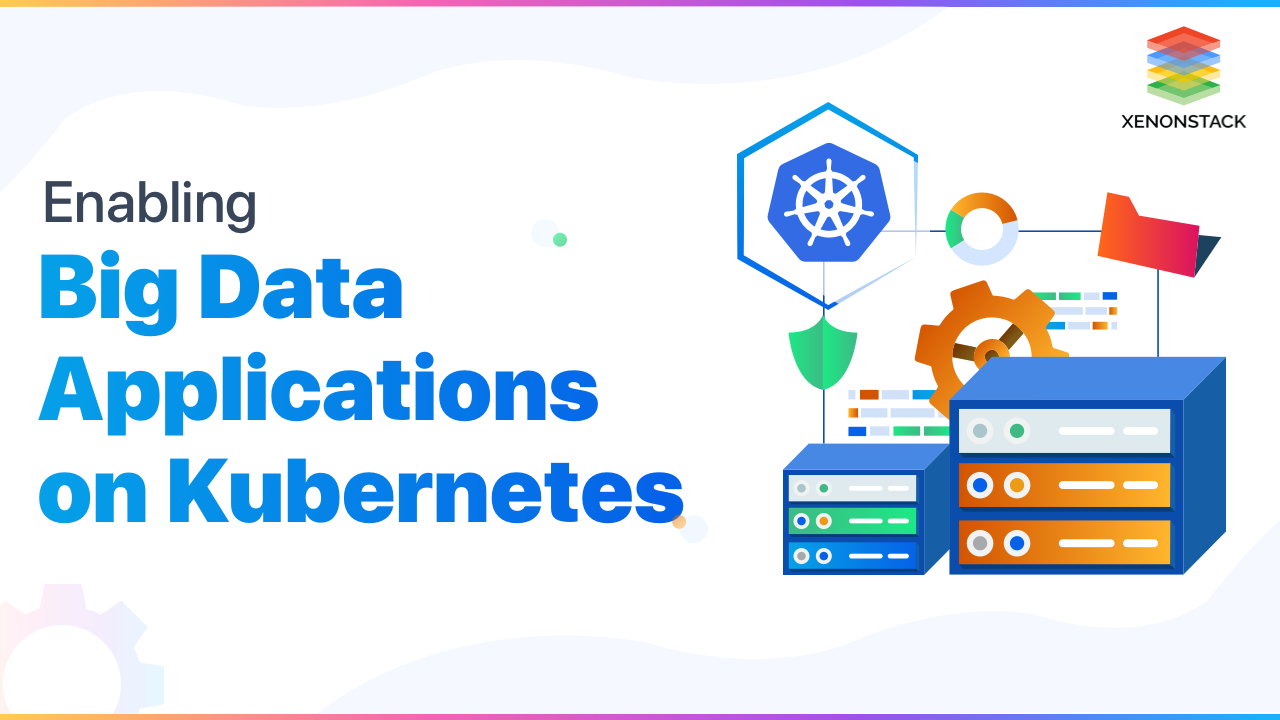
Introduction to Big Data on Kubernetes
Enabling Big Data on Kubernetes is a good practice for the transition of smooth data. The early adoption of Kubernetes was not for data-centric applications but rather dominated by stateless services. Recently more big data platforms are looking to deploy and operate workloads on the cloud with Kubernetes for scalability.
What is Apache Hadoop?
Apache Hadoop is a framework that allows storing large data in distributed mode and distributed processing on that large datasets. It is designed in such a way that it scales from a single server to thousands of servers. The Apache Hadoop has solutions for all kinds to business issues including:
- Data Operations
- Data Accessing
- Data integration and governance
- Information Security
- Data Management
A unified, secure Big Data platform performs Data Integration and Migration of the data. Click to explore about, Big Data Compliance, Security and Governance Solutions
How does Big Data work on Kubernetes?
- Wrap Namenode in a Service; Kubernetes pod uses a Service resource.
- Kubernetes Service basically gives an IP/hostname in the cluster which load balances incoming requests across the selected pods.
- The pods give NameNode pod a label say App - namenode and creates service i.e. selected pods with that labels.
- Identify data node through Stateful Sets:- Stateful application such as Kubernetes provides another resource called Stateful Sets to help such applications.
- In a Stateful Set, each pod gets identified by its name, its storage, and its hostname.
- Run fully distributed HDFS on a single node - In the Kubernetes world, the distribution is at the container level. If more than one node, manage a dedicated disk, runs on a single node; its distributed and now, a fully distributed HDFS runs on a single machine.
What are the benefits of Big Data on Kubernetes?
- Support multiple standby NameNodes.
- Supports multiple NameNodes for multiple namespaces.
- Storage overhead reduced from 200% to 50%.
- Support GPUs.
- Intra-node disk balancing.
- Support for Opportunistic Containers and Distributed Scheduling.
- Support for Microsoft Azure Data Lake and Aliyun Object Storage System file-system connectors.
An Open-Source Language. Basically like Java, C and C++ - Kotlin is also “statically typed programming language”.. Click to explore about, Kotlin Application Deployment with Docker and Kubernetes
Why Big Data on Kubernetes Matters?
- The minimum Runtime Version for Hadoop 3.0 is JDK 8.
- Support for Ensure Coding in HDFS.
- Hadoop Shell scripting rewrite.
- MapReduce task Level Native Optimization.
- Introducing more powerful YARN in Hadoop 3.0.
- Agility & Time to Market.
- Total Cost of Ownership.
- Scalability & Availability.
How to adopt Big Data on Kubernetes?
Simple steps to deploy an application to Kubernetes -
- Create a Dockerfile.
- Set Up a Cluster.
- Connect to Cluster.
- Add Cluster and Login Docker Registry.
- Deploy a Docker image.
- Build and deploy an image.
- A pull secret.
- The image name and registry.
- The ports to be used.
- Deploy the private image to Kubernetes.
- Automate the process Deployment to Kubernetes.
Some basic Kubernetes Terminologies
- Cluster
- Node
- Namespace
- Deployment
- Pod
- Container
- Service
An open source stream processing platform for the software, written in JAVA and SCALA which is initially developed by LinkedIn and then was donated to the Apache Software Foundation. Click to explore about, Apache Kafka Security with Kerberos on Kubernetes
What are the best practices of Big Data on Kubernetes?
The best practices of Big Data on Kubernetes are highlighted below:
- Keep the Image Small- Before start looking around for base images. An application requires a size not more than 15MB, using a 600MB image is a wastage of resources. When less MB of the image used, it makes faster Container build using lesser space.
- Use a single image- It is easy for the Pod that only one Container runs. It makes Pod performance better. When multiple Containers run in Pods is a mess to connect, manage, and secure Microservices as these interrupt all communication.
- Double-check base image - Many of them make mistakes while selecting an Image. All things depend on the base image. There are lots of images present on Docker Hub, select the image as per the requirement of the Project. Before using the base image to build a Docker image, double-check Base image.
- Use Namespaces and Labels - Proper define Namespaces and labels during deployment of the image. Inside Kube-cluster there is Virtual Cluster called Namespace isolated from one another. For selecting subsets of objects use Labels.
- Use Non-Root users inside the Container - Always prefer to use Non-Root users inside Container because of security reasons. Non Root User has selected permissions for that Container.
- Services and Pods - A service is responsible for making Pods discoverable inside the network or exposing them to the internet. A Pod hosts multiple Container and storage volumes.
- Be familiar with Kube Components - Multitude Components used to enhance performance, security, and reliability of Setup.
- Wrap Namenode in a Service.
- Identify data node through Stateful Sets.
- Run fully distributed HDFS on a single node.
What are the best Tools for Enabling Big Data on Kubernetes?
The best tools for enabling Big Data on Kubernetes are below mentioned:
Holistic Strategy
Enabling Big Data on Kubernetes is a great work for the transition of continuous data. Apache Hadoop, no doubt is a framework that enables storing large data in distributed mode and distributed processing on that large datasets. To learn more about enabling big data on kubernetes, you are advised to look into the below steps:
- Learn more about Apache Hadoop Security
- Get use case on Big Data Analytics on Kubernetes
- Explore about Big Data Consulting Services
.webp?width=1921&height=622&name=usecase-banner%20(1).webp)


